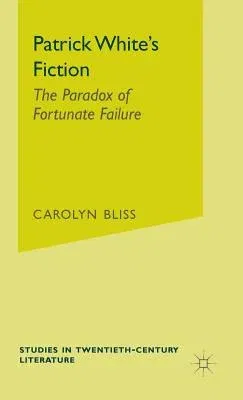Carolyn Bliss
(Author)Patrick White's Fiction: The Paradox of Fortunate Failure (1986)Hardcover - 1986, 18 August 1986

Qty
1
Turbo
Ships in 2 - 3 days
In Stock
Free Delivery
Cash on Delivery
15 Days
Free Returns
Secure Checkout

Part of Series
Studies in 20th Century Literature
Part of Series
Studies in Twentieth-Century Literature
Part of Series
MacMillan Studies in Twentieth-Century Literature
Print Length
255 pages
Language
English
Publisher
Palgrave MacMillan
Date Published
18 Aug 1986
ISBN-10
0333388690
ISBN-13
9780333388693
Description
Product Details
Author:
Book Edition:
1986
Book Format:
Hardcover
Country of Origin:
US
Date Published:
18 August 1986
Dimensions:
21.59 x
13.97 x
1.91 cm
Genre:
20th Century
ISBN-10:
0333388690
ISBN-13:
9780333388693
Language:
English
Location:
London
Pages:
255
Publisher:
Series:
Weight:
494.42 gm